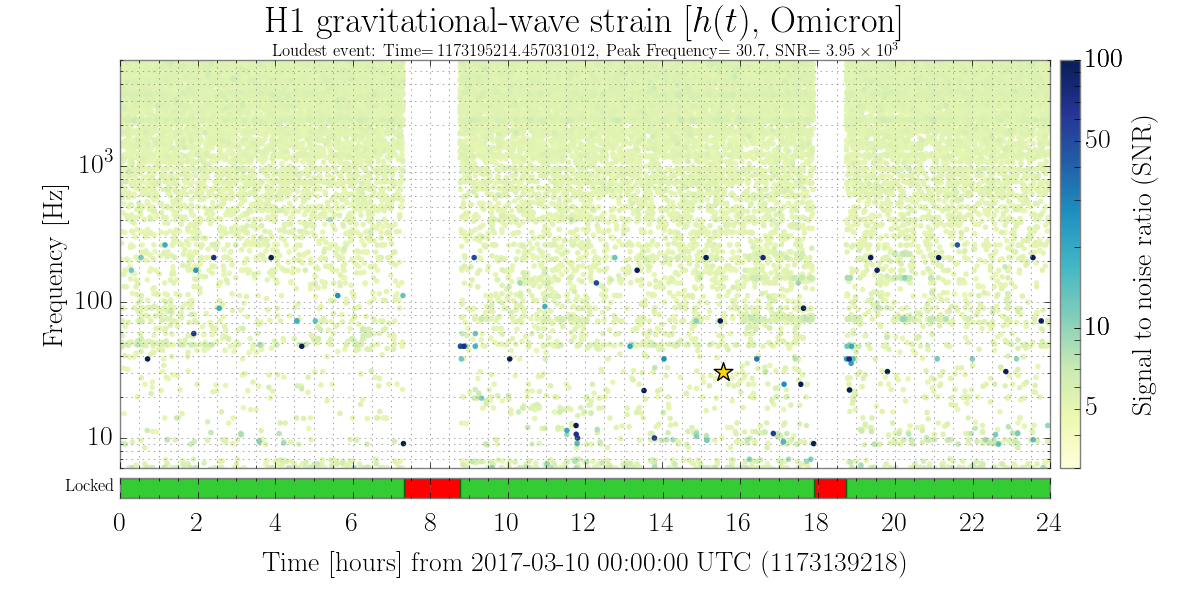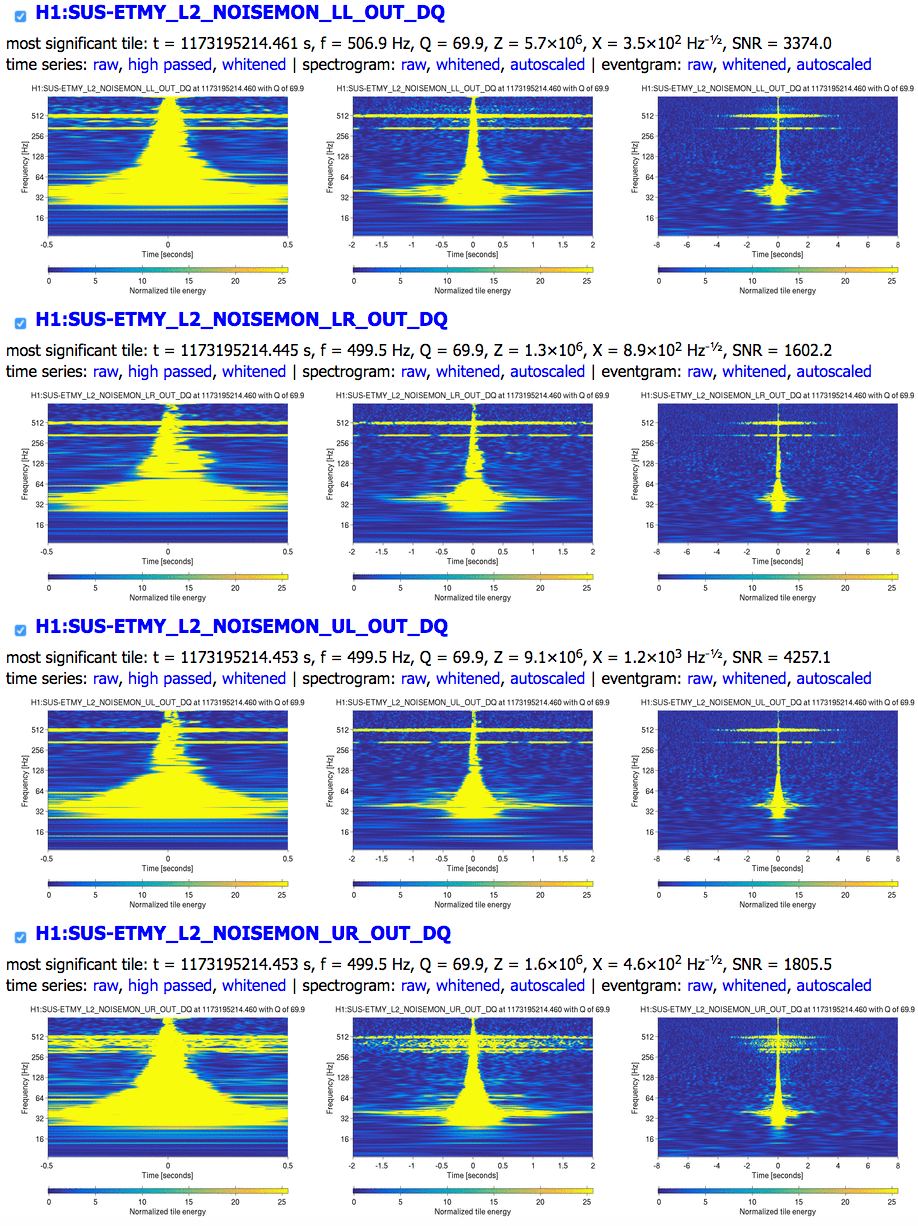Ops Shift Log: 03/12/2017, Day Shift 15:00 – 23:00 (08:00 - 16:00) Time - UTC (PT)
State of H1: Locked at NLN for 13.5 hours at 30.2W and 64.3 Mpc.
Intent Bit: Observing
Support: Keita, Jenne,
Incoming Operator: Travis
Shift Summary: Ran A2L DTT check – Pitch and Yaw are a bit elevated. As LLO is down, dropped out of Observing to run corrective script. A2L script finished with errors. Back to Observing. Spoke with Keita about the A2L Script. See aLOG #34763 for details. Successfully ran the script from a Controls terminal. Pitch and Yaw are now below the reference.
Remained lock for the entire shift. No issues or problems to report.
Activity Log: Time - UTC (PT)
15:00 (08:00) Take over from Nutsinee
15:20 (08:20) Ran A2L check script
15:27 (08:27) Drop out of Observing to run A2L Script
15:32 (08:32) Back to Observing after A2L Script finished
15:40 (08:40) Bubba - Going down both Arms to check for tumbleweed accumulation
16:05 (09:05) Bubba – Back from Arm inspection
17:03 (10:03) Drop out of Observing to run A2L Script – aLOG #34763
17:12 (10:12) Back to Observing after A2L Script ran successfully on a Controls terminal
23:00 (16:00) Turn over to Travis














Head 3 flow rate looks to be the cause. Attached are two trend plots: one for the past 2 hours and one for the past 12 hours. The flow rate looked pretty clean for the past 12 hours before getting ragged. If there were any bubbles in the system because of yesterday's trip, this would be a good candidate for one.